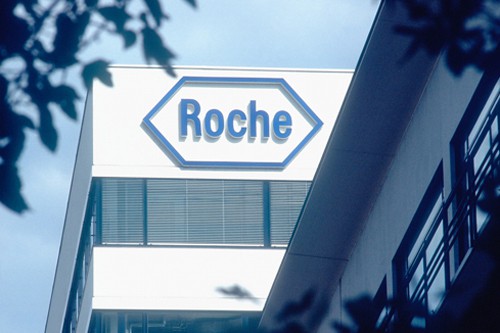
Roche’s idiopathic pulmonary fibrosis drug Esbriet will be available routinely on the NHS in England and Wales, but only for patients with more severe forms of the disease.
The National Institute for Health and Care Excellence (NICE) is standing by its draft guidance and will not extend the use of Esbriet (pirfenidone), which effectively means IPF patients will have to wait until their disease has progressed and lung function has deteriorated before they can get access to the drug.
Esbriet is approved in Europe for treating mild to moderate IPF in adults, and according to NICE has a list price equivalent to around £70 ($98) per day before Roche’s confidential discount.
Under the guidance, patients must have a predicted forced vital capacity (FVC) of 50-80% before they can have the drug prescribed and must discontinue treatment with it if there is evidence of disease progression (a 10% decline in predicted FVC) within any 12-month period. Those are the same conditions applied to Boehringer Ingelheim’s Ofev (nintedanib), the only other approved IPF treatment in the UK.
The position on Esbriet and Ofev means that patients with higher lung functions above an FVC of 80% predicted are currently managed using ‘best supportive care’, according to the guidance.
According to medical charity Action Pulmonary Fibrosis (APF), both Esbriet and Ofev have been shown in clinical trials to slow down the progression of IPF and the size of the effect is broadly similar for both drugs, even though they have different mechanisms of action.
Dr Toby Maher, consultant physician at the Royal Brompton Hospital and a recognised expert in IPF, said when NICE published its guidance last year that in his opinion the agency’s position was a mistake.
“IPF is an irreversible disease and a growing body of evidence shows that the earlier the disease is treated the more lung function can be preserved thus providing greater long-term patient benefit, he commented. “I would like to have this medicine as an option for all my patients rather than wait for them to get irreversibly worse before I can treat them.”
IPF is a progressive, irreversible and typically fatal lung disease characterised by scarring pf the lungs that makes breathing increasingly difficult. It’s not clear what causes it, and while it usually affects people aged over 70 it can occur at any age but is rare in the under 50s.
Roche acquired Esbriet when it spent $8.3bn in 2014 to buy InterMune, the company which developed the drug, and has seen its sales grow steadily to a level of CHF 869m ($929m) last year.




